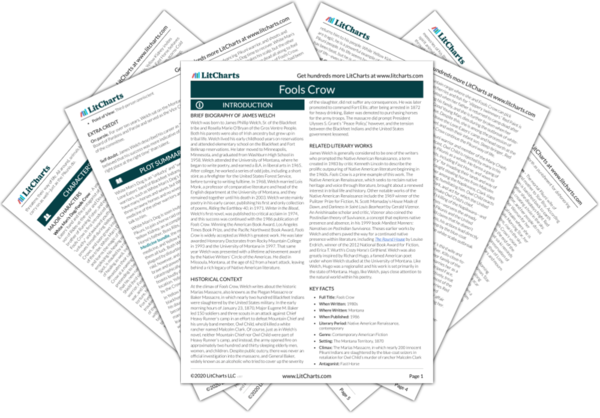Rides-at-the-door’s initial assessment of his sons and their abilities is highly ironic. White Man’s Dog, of course, becomes a respected member of the tribe, whereas Running Fisher is ultimately banished for dishonoring his father’s lodge. White Man’s Dog, like the Pikuni people, is a deeply spiritual young man, and the mere mention of Mik-api’s medicine is enough to help him find his strength.
